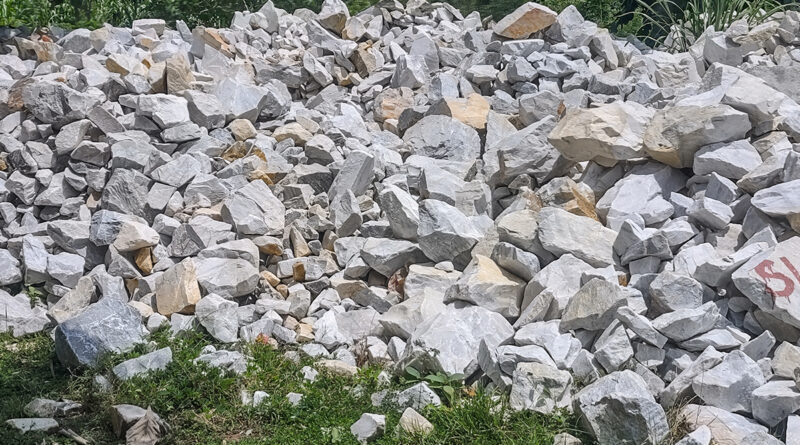Calcium Carbonate Production and Supply in Nigeria and Africa: Opportunities, Uses, and Business Potential
Calcium Carbonate is a highly versatile mineral compound essential across multiple industries, including construction, pharmaceuticals, agriculture, plastics, and more. In Nigeria and Africa, the production and supply of Calcium Carbonate present a lucrative business opportunity, leveraging abundant local resources and growing market demand. The Calcium Carbonate process and supplier landscape in this region is set to thrive as the market evolves. Understanding the Calcium Carbonate process and supplier integration is vital for successful business operations. Additionally, the Calcium Carbonate process enhances product quality, making it essential for industry stakeholders.
Market Demand for Calcium Carbonate in Nigeria and Africa
The growing interest in the Calcium Carbonate process and supplier relationships highlights the importance of effective communication and logistics in the industry.
The Calcium Carbonate process plays a crucial role in maintaining product standards in this burgeoning market.
As the demand for quality increases, the Calcium Carbonate process must continue to adapt, ensuring suppliers can meet industry expectations.
Understanding the nuances of the Calcium Carbonate process is critical for suppliers aiming for competitive advantage in the market.
Additionally, mastering the Calcium Carbonate process can lead to innovations that further enhance supplier capabilities.
Strategically focusing on the Calcium Carbonate process may provide new avenues for suppliers to increase their market share.
Furthermore, advancements in the Calcium Carbonate process are essential to meet the evolving demands of diverse industries.
A robust understanding of the Calcium Carbonate process equips suppliers to leverage export opportunities more effectively.
Nigeria’s Calcium Carbonate process and supplier network is becoming increasingly prominent in the global market.
The Calcium Carbonate process also opens doors for innovative product formulations that appeal to international markets.
Investors should focus on optimizing the Calcium Carbonate process to maximize efficiency and product quality.
Understanding the Calcium Carbonate process will directly influence the success of any new production and supply venture.
As the Calcium Carbonate process evolves, suppliers must adapt to meet the growing needs of various industries.
Ongoing innovation in the Calcium Carbonate process ensures that suppliers remain competitive and can meet international standards.
The demand for Calcium Carbonate in Nigeria is on the rise, driven by its extensive applications in various industries such as paint, paper, plastics, and rubber. The country’s expanding industrial base and increasing population further boost its local consumption. Additionally, Nigeria is rich in limestone deposits, which serve as the primary raw material for Calcium Carbonate production, providing a strong foundation for local manufacturing and supply. Understanding the Calcium Carbonate process and supplier dynamics will be crucial for stakeholders in this industry.
This potential for export positions Nigeria as a key player in the Calcium Carbonate process and supplier market.
On a global scale, the Calcium Carbonate market is also experiencing significant growth, fueled by the rising demand in construction, healthcare, food processing, and the paper industry. Market analysts project substantial expansion in the coming years, making Calcium Carbonate a highly profitable commodity.
Entrepreneurs entering the Calcium Carbonate production and supply business should focus on mastering the Calcium Carbonate process to ensure long-term success.
Export Opportunities for Calcium Carbonate from Nigeria
Beyond meeting domestic demand, Nigeria has immense potential to export Calcium Carbonate products to other African nations and international markets. With proper quality control, marketing strategies, and adherence to global standards, Nigerian businesses can establish themselves as key suppliers in the global Calcium Carbonate industry.
Starting a Calcium Carbonate Production and Supply Business in Nigeria
To successfully launch a Calcium Carbonate production and supply business in Nigeria, entrepreneurs must consider several critical factors:
- Sourcing High-Quality Raw Materials: Securing access to premium-grade limestone or marble deposits is essential.
- Efficient Production Processes: Implementing effective grinding, purification, and processing techniques to achieve optimal yield and quality.
- Market Research and Competitive Pricing: Understanding market dynamics, pricing strategies, and customer demand.
- Strong Distribution Networks: Establishing supply chains for local and international sales.
- Regulatory Compliance: Meeting industry standards and obtaining necessary certifications for export and local distribution.
What is Calcium Carbonate?
The Calcium Carbonate process also plays a pivotal role in determining the quality of the final product supplied to various sectors.
Calcium Carbonate (CaCO3) is a naturally occurring mineral composed of calcium, carbon, and oxygen. Due to its diverse chemical and physical properties, it serves as a filler, pigment, pH regulator, and dietary supplement. It is widely used in the production of paper, plastics, paints, ceramics, pharmaceuticals, and many other products.
Process of Calcium Carbonate Production and Supply
The production of Calcium Carbonate involves multiple steps:
- Extraction: Sourcing raw materials from limestone or marble deposits.
- Crushing and Grinding: Breaking down the raw materials into fine particles.
- Purification and Processing: Enhancing purity and refining to achieve industry-specific standards.
- Packaging and Distribution: Supplying the final product to various industries.
The production efficiency of a Calcium Carbonate business depends on factors such as raw material quality, refining techniques, and processing technology. A well-optimized production system can yield 70%-90% of Calcium Carbonate from raw materials.
Uses of Calcium Carbonate in Nigeria and Africa
- Construction Industry – Used in cement, concrete, and mortar production to enhance durability.
- Agriculture & Soil Improvement – Neutralizes acidic soils and improves crop yield.
- Pharmaceuticals & Healthcare – Used in antacids and calcium supplements.
- Paper & Pulp Industry – Enhances paper brightness and opacity.
- Plastics & Rubber Industry – Acts as a filler and strengthens plastic products.
- Paints & Coatings – Used as a pigment and filler in paint production.
- Adhesives & Sealants – Improves bonding properties and consistency.
- Water Treatment – Helps in pH balance and heavy metal removal in wastewater treatment.
- Food & Beverage Industry – Used as a calcium fortifier and anti-caking agent.
- Animal Feed Industry – Provides essential calcium for livestock growth.
Benefits of Investing in Calcium Carbonate Production in Nigeria
- Economic Growth Contribution – Drives industrial expansion and GDP growth.
- Employment Creation – Generates jobs in mining, processing, packaging, and sales.
- Export Revenue – Increases foreign exchange earnings through international trade.
- Local Raw Material Utilization – Reduces dependence on imported materials.
- Value Addition – Converts raw limestone into high-value industrial products.
- Cost Savings for Industries – Provides a cost-effective alternative for various manufacturing processes.
- Infrastructure Development – Leads to the establishment of production plants and logistics hubs.
- Technology Advancement – Encourages the adoption of modern processing techniques.
- Industrial Sector Diversification – Reduces over-reliance on oil and other traditional industries.
- Tax Revenue Generation – Supports government revenue through industry taxation.
The versatility of the Calcium Carbonate process allows for applications across various sectors, enhancing its market potential.
Investing in the Calcium Carbonate process allows for greater efficiency and quality, thereby enhancing supplier reputation.
By understanding the Calcium Carbonate process, businesses can better serve the diverse needs of their customers.
The Calcium Carbonate process not only supports local industries but also positions Nigeria for international trade opportunities.
Ultimately, businesses that excel in the Calcium Carbonate process will position themselves as preferred suppliers in the market.




